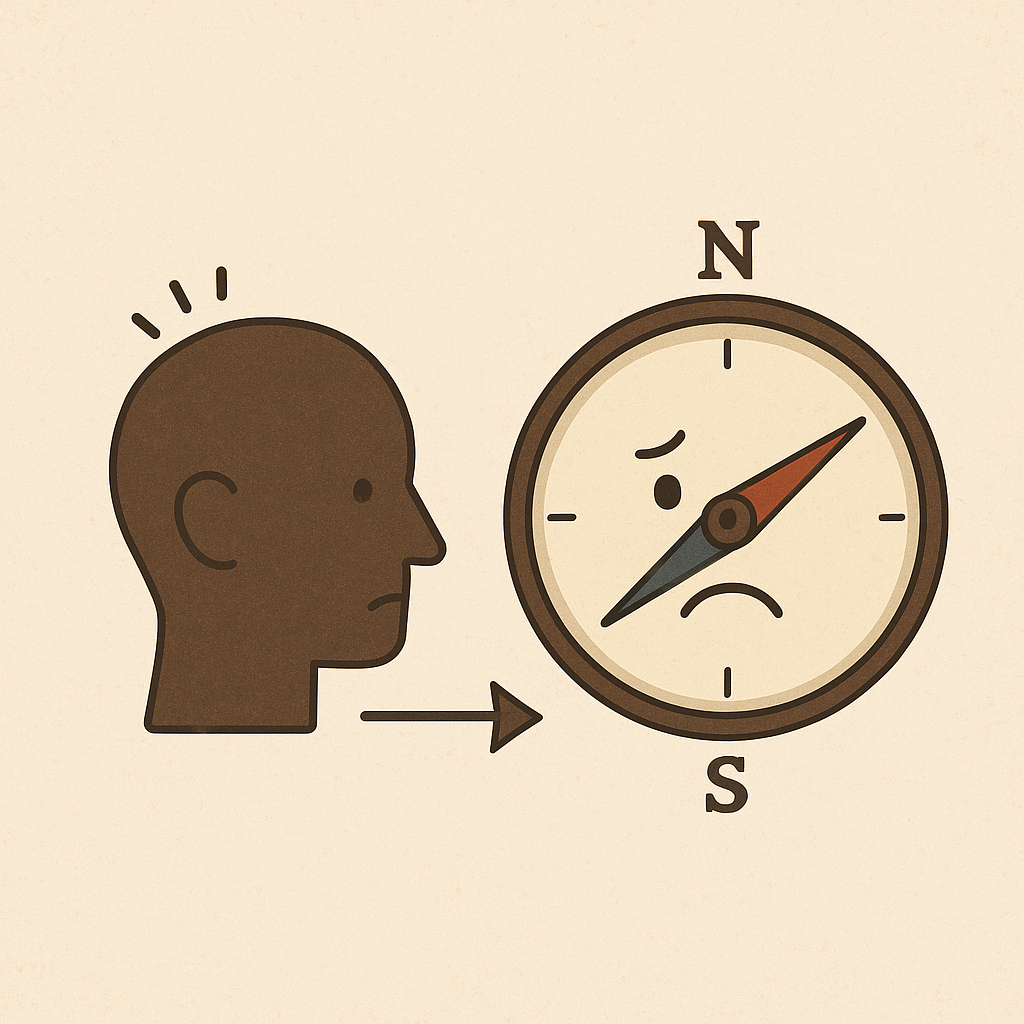
10 Signs You’re Living Out of Alignment With Your Values
When Success Feels Empty
You wake up one morning and realize that, on paper, your life looks good. You’ve checked many of the boxes — a decent career, relationships that seem fine, maybe even a few milestones that once felt like dreams. Yet, somewhere beneath it all, there’s that quiet, unsettling feeling that something isn’t quite right.
It’s not burnout. It’s not depression. It’s more subtle — a kind of inner dissonance that whispers, “This isn’t who I really am.” You go through your day doing the things you’re supposed to do, but a part of you feels disconnected, like you’re watching your own life from the outside.
That’s the experience of living out of alignment with your values.
When our daily choices stop reflecting what truly matters to us, we begin to lose our sense of direction. Life still moves forward — meetings happen, bills get paid, milestones arrive — but it starts to feel mechanical, like walking on a treadmill instead of an open path. We can sense the motion, but not the meaning.
Most people don’t even notice when this misalignment begins. It happens quietly, over time — a few small compromises here, a few “I’ll deal with it later” moments there. You convince yourself that everyone feels this way, that this is just adulthood. But deep down, you know something is off.
You’re not lazy. You’re not ungrateful. You’re simply out of sync with what you value most.
This article explores ten signs that you may be living out of alignment with your core values — the subtle but powerful indicators that your inner compass needs recalibration. By recognizing them early, you can begin to realign your choices, your energy, and your direction toward a life that feels genuinely yours.

What Does It Mean to Live in Alignment With Your Values?
To live in alignment with your values means that your actions, decisions, and priorities reflect what you truly believe is important. It’s the difference between knowing what matters to you and living it every day — in your work, your relationships, your habits, and even in the small choices you make when no one is watching.
Your values are the invisible compass that guides you toward meaning. They shape what you find fulfilling, what you stand for, and what you refuse to compromise on. But here’s the paradox: most people have never consciously defined theirs. They inherit them from family, culture, or circumstance — and then wonder why life feels off-key.
When your life is in alignment, there’s a sense of coherence. Your outer world — your schedule, commitments, lifestyle — mirrors your inner world. You feel grounded, purposeful, and calm, even when life is challenging. You’re not constantly chasing happiness; you’re expressing it through congruence.
When you’re out of alignment, you feel an inner friction. You might be successful but restless, surrounded by people yet lonely, productive but strangely unfulfilled. This misalignment doesn’t always look dramatic — sometimes it hides behind busyness, ambition, or “being fine.” But over time, it erodes your sense of authenticity.
Living in alignment doesn’t mean being perfect or rigid. It means returning to your center — again and again — and making small adjustments to stay true to what matters most. It’s less about doing the right thing and more about doing the true thing.
If you’re unsure what your core values actually are, that’s where the journey begins. Tools like personalvalu.es can help you identify and order your top values, giving you a clear mirror to see what drives you. Because once you know your compass, it becomes much easier to recognize when you’ve drifted off course.
1. You Feel Constantly Restless or Dissatisfied
No matter what you achieve, it never feels like enough. You move from one project or milestone to the next, but the satisfaction fades quickly — sometimes before the moment even arrives. This isn’t ambition; it’s misalignment. When your goals don’t match your core values, success feels hollow. You might be pursuing what’s expected of you — career progress, money, recognition — but not what’s authentic to you. True fulfillment doesn’t come from ticking boxes; it comes from living in integrity with what you believe matters. Restlessness is often your inner compass trying to get your attention.
2. You Say “Yes” When You Really Mean “No”
You agree to things you don’t have the energy or desire to do — to keep the peace, to avoid guilt, or to appear helpful. Over time, these small betrayals accumulate. You start feeling resentment, even toward people you care about. Saying yes to everyone else often means saying no to yourself. Living in alignment means learning to set boundaries rooted in respect, not rebellion. A “no” isn’t rejection — it’s a commitment to your priorities and values.
3. You Feel Drained by People or Commitments That Once Felt Fine
Sometimes it’s not that you’ve changed — it’s that you’ve grown. What once energized you may now feel heavy or meaningless because your values have evolved. Friendships, jobs, or routines that once aligned with who you were may no longer match who you’re becoming. When your energy consistently drops in certain spaces, that’s feedback. It’s not about blaming others; it’s about listening to what your inner state is telling you. The version of you today might need new environments that reflect your current values.
4. You Rationalize Your Choices Instead of Feeling Proud of Them
You catch yourself explaining — even defending — why you made a certain decision. You might say, “It’s not that bad,” or “It makes sense right now,” while something deep down doesn’t agree. That’s a subtle but powerful sign of misalignment: when logic tries to silence intuition. When you’re living in alignment, your choices feel clean. You don’t need to justify them, because they resonate with who you are. Pride, not defensiveness, becomes your natural state.
5. You Chase Goals That Don’t Excite You Anymore
There’s a moment when ambition turns into autopilot. You keep pushing toward goals you once cared about — maybe a promotion, a purchase, or a milestone — but the emotional connection is gone. You’re still moving, but without meaning. This happens when external validation replaces internal alignment. When you stop asking “Is this still right for me?”, you risk achieving a version of success that no longer fits the person you’ve become. Realignment often begins the moment you have the courage to pause and ask, “Do I still want this?”
6. You Envy People Who Seem “Authentic”
You notice yourself drawn to people who live boldly, speak honestly, or take unconventional paths. That envy isn’t jealousy — it’s admiration in disguise. It’s your subconscious saying, “That’s what I want too.” Instead of comparing, use that emotion as a mirror. Ask yourself what exactly you admire — is it their courage, freedom, or simplicity? Often, the qualities you envy are reflections of your own unlived values waiting to be expressed.
7. You Feel a Gap Between Your Public and Private Self
You play roles — the professional, the partner, the parent — but rarely feel like your whole self anywhere. You might filter your words, hide your opinions, or soften your authenticity to be “appropriate.” That split between who you are and who you present yourself as is exhausting. Alignment means coherence: being the same person across contexts. You don’t have to overshare or be loud — just honest. When your private and public selves overlap, you experience peace instead of performance.
8. You Often Think “I Should Be Happy, But I’m Not”
You look around and realize you have many things you once wanted — yet happiness feels strangely distant. That sentence — “I should be happy” — reveals a mismatch between your external circumstances and your internal truth. Maybe you’ve been living by borrowed dreams — goals shaped by family, culture, or peers — instead of your own. When you start living your values, that “should” disappears. You stop chasing happiness as an outcome and begin feeling it as a byproduct of authenticity.
9. You Numb Discomfort With Distractions
Scrolling, binge-watching, overworking, snacking — whatever it takes to avoid sitting with that uneasy feeling. Misalignment often creates subtle emotional pain — and numbing is a natural attempt to escape it. But distractions don’t dissolve the discomfort; they delay the realization. Every moment you avoid looking inward is a moment you stay stuck in someone else’s story. Awareness — not avoidance — is the first step toward realignment.
10. You’ve Lost Touch With What Truly Matters to You
You can’t quite name what’s important anymore. Life feels cluttered with obligations, but you’re not sure which ones are meaningful. This is the ultimate sign of misalignment: when clarity fades. You start reacting instead of choosing. The good news is that rediscovery doesn’t require drastic change. It starts with reflection — writing, silence, or simply asking, “What do I care about right now?” Your values are always there, waiting beneath the noise. All you need is to listen.

How to Realign With Your Values
Realignment doesn’t happen in one dramatic decision. It happens through small, intentional shifts — moments when you choose honesty over comfort, awareness over autopilot, and meaning over momentum.
Living in alignment with your values isn’t about reinventing your life overnight. It’s about remembering who you are beneath all the noise and realigning your daily choices with that truth.
Here’s how to begin.
1. Pause and Notice the Friction
Before you can change anything, you have to notice what feels “off.” Look for tension — the places where your actions and feelings don’t match. Maybe it’s a job that pays well but drains you, or a friendship that feels one-sided. That discomfort isn’t failure; it’s feedback. Instead of ignoring it, get curious. Ask yourself: “What value of mine is being compromised here?”
2. Reconnect With What Truly Matters
Most people have never defined their core values clearly. They live by vague ideas like “success,” “kindness,” or “freedom,” but haven’t explored what those actually mean to them. Start by identifying your top values — the things that, if removed from your life, would leave it feeling meaningless. You can use a structured process like the free personalvalu.es assessment to uncover and rank yours. When you see them clearly, decisions that once felt confusing begin to make sense.
3. Audit Your Current Life
Once you know your values, take an honest look at how your life supports — or contradicts — them. Where do your time, energy, and money actually go? Do your daily routines reflect what matters most, or what’s most urgent? Alignment starts where awareness meets action. You don’t need perfection — just pattern recognition.
4. Make Micro-Adjustments
You don’t have to quit your job or move across the world. Often, realignment starts with the smallest changes:
- Saying “no” once when you usually say “yes.”
- Setting aside ten quiet minutes before reaching for your phone.
- Choosing one project that excites you, not just the one that looks good on LinkedIn.
Tiny acts of integrity compound over time. Each small correction reorients your compass toward authenticity.
5. Replace Guilt With Growth
When you realize you’ve been living out of alignment, guilt often follows. But guilt is only useful when it points to responsibility — not shame. You did the best you could with the awareness you had. Now you have more awareness, and that’s progress. Growth begins when you let go of the past version of yourself without resentment.
6. Create Rhythms of Reflection
Alignment isn’t a one-time achievement; it’s a rhythm. Check in regularly — weekly, monthly, or after major decisions. Ask yourself:
- Am I proud of how I spent my time this week?
- Did my choices reflect my values or my fears?
- What small correction can I make today?
This practice keeps you close to your truth and prevents the slow drift back into disconnection.
7. Surround Yourself With People Who Reflect Your Values
We unconsciously mirror the values of those around us. If your environment constantly rewards hustle, you’ll feel guilty for resting. If your friends celebrate authenticity, you’ll feel safe being yourself. Choose relationships that nourish, not drain, your integrity. It’s easier to live your values when you’re not constantly defending them.
8. Be Patient With the Process
Rebuilding alignment takes time. You’re undoing habits, expectations, and stories that may have guided you for years. Progress often feels like two steps forward, one step back — and that’s normal. What matters isn’t perfection, but direction. Every conscious choice, however small, moves you closer to the life you actually want to live.
Realignment is not about becoming someone new — it’s about returning to yourself. When your values lead, clarity follows. And if you’re ready to discover or rediscover what truly matters to you, start by taking the free core values assessment at personalvalu.es — your compass is waiting.

Closing Thoughts: Realignment as a Lifelong Practice
Living in alignment with your values isn’t a destination — it’s a rhythm you return to, again and again. No one stays perfectly aligned all the time. Life shifts, priorities evolve, and even the clearest compass can drift. The real skill isn’t in staying centered — it’s in noticing when you’ve drifted, and gently steering back.
Each moment of discomfort, restlessness, or disconnection isn’t a sign of failure. It’s an invitation. Your values aren’t rigid rules carved in stone; they’re living principles that guide you through changing seasons. As you grow, they deepen and take on new meaning. What once defined you may eventually fall away, and that’s not inconsistency — it’s evolution.
Realignment is built on self-honesty. It asks you to listen to the quiet signals — the tension in your chest when something feels wrong, the lightness in your body when something feels right. It’s not about having all the answers, but about having the courage to keep asking the right questions.
The more you honor your values in everyday decisions — the conversations you have, the work you choose, the way you treat yourself — the more your life begins to feel like yours again. Authenticity becomes less of an ideal and more of a habit.
And when the next wave of misalignment comes — because it will — you’ll recognize it not as a crisis, but as a compass. A reminder that you’ve simply wandered a little too far from yourself. And that, at any moment, you can return.